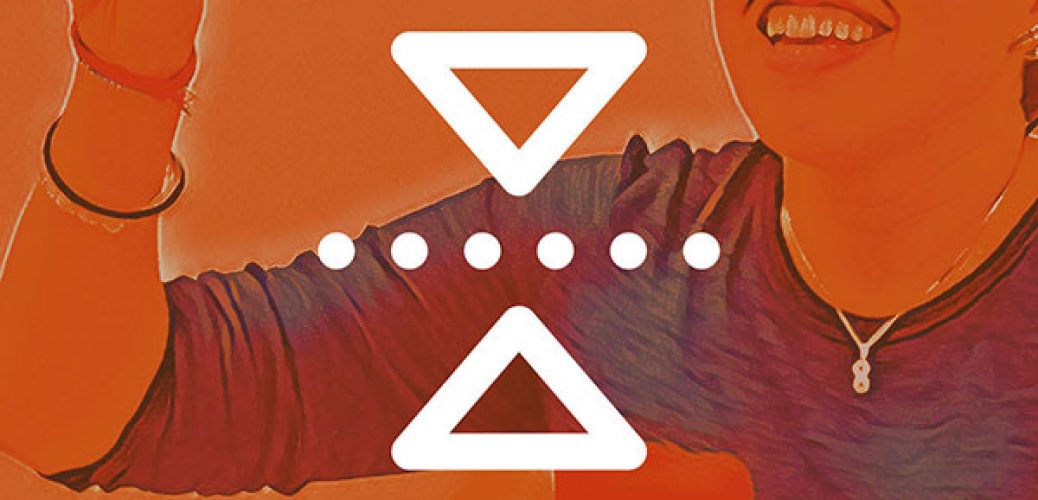Episode 12 – Dave Whittleston (MIT Graduate Student) Reflects On Episodes 9-12
Podcast: Play in new window | Download (Duration: 5:23 — 7.4MB) | Embed Subscribe: Apple Podcasts | Google Podcasts | Stitcher | Email | TuneIn | RSS
We sit down with a graduate student to unpack the previous episodes.
EPISODE CREDITS
Guest Starring Dave Whittleston, PhD Candidate at the MIT Entekhabi Research Group
Produced & Hosted by Adam Greenfield
Executive Produced by Patrick Yurick, Instructional Designer – MIT OGE
Executive Produced by Heather Konar, Communication Director – MIT OGE
Special thanks to the following editors who provided us invaluable feedback that aided in the development of this show:
Christopher O’Keeffe, Co-Founder of Podcation
Kristy Bennet, Manager – MIT Women’s League
Jennifer Cherone, Phd Candidate – MIT Burge Laboratory
Erik Tillman, Phd, Formerly of the Kim Lab & Currently A Fellow at Vida Ventures, LLC
The Great Communicators Podcast is a part of Gradcommx. Gradcommx, targeted at enhancing research communication, is the first offering of Gradx – a professional development project created for the graduate student population at the Massachusetts Institute of Technology by the Office For Graduate Education.
MUSIC & SOUNDS
“All The Best Fakers” by Nick Jaina is licensed under a Attribution-NonCommercial 3.0 International License (http://freemusicarchive.org)
“Upbeat” by Jon Luc Hefferman is licensed under a Attribution-NonCommercial 3.0 International License. (http://freemusicarchive.org)
“Deliberate Thought” Kevin MacLeod (incompetech.com) is Licensed under Creative Commons: By Attribution 3.0 License http://creativecommons.org/licenses/by/3.0/
EPISODE SCRIPT
ADAM GREENFIELD
Welcome to The Great Communicators Podcast presented by The MIT Office of Graduate Education, a professional development podcast expressly designed to bring lessons from the field to our graduate student researchers.
My name is Adam Greenfield and in this special episode, we’re going to get a different perspective on the things we’ve heard so far.
We asked a few MIT grad students to listen to the interviews we conducted with these great speakers, then provide feedback on what they heard.
In this episode…
DAVE WHITTLESTON
My name is Dave Whittleston. I’m a civil and environmental engineering student in my sixth year of my PhD, so I’m studying weather and climate science.
ADAM GREENFIELD
In our conversation, Dave mentioned one of the big reasons he went into his particular field of climate science is because of his interest in the debate behind it and the implications of climate change when it comes to the world’s population.
DAVE WHITTLESTON
I wanted to spend a decent chunk of time understanding what we know and what we don’t know. I think that really gets lost and people are not willing to spend the time to understand the nuances in a lot of the research coming out.
ADAM GREENFIELD
And in turn, that can cause problems when trying to communicate that information to others.
In the podcast there was something Scott Lewis brought up that struck a chord with Dave, and it had to do with the value of work or research getting as much attention as possible but at the same time, there can be a pitfall.
DAVE WHITTLESTON
I think he said something along the lines of…
SCOTT LEWIS
Investigative journalism, its success, its impact, its influence, its value is really dependent on how much it captures attention, too, and how much it tells a good story.
DAVE WHITTLESTON
And I think as maybe someone who wasn’t in science, he said that’s not- you know, “Science is this peer review process and this noble kinda thing.” That totally resonated with me. I think the value of any scientific work at the moment is in how much attention it gets and I think that puts a lot of pressure on researchers to come up with certain results.
ADAM GREENFIELD
Dave also brought up something Brunie Felding discussed that was playing a very important role in his graduate student path at the time of our conversation.
DAVE WHITTLESTON
I’m in my sixth year of my PhD, I’m aiming to graduate in a month, you know, to defend my thesis, so I’m kind of at the end of that process. Something that I think resonated was the value of feedback….
BRUNIE FELDING
But to then have somebody else to look at it in a different way and throw a question at you, it enriches you and sometimes it enhances- it kind of reinforces what you were already thinking. Or it throws you off balance for a moment and you think, whoopsie, what do I need to consider here to address this question that this person had.
DAVE WHITTLESTON
….and kind of- maybe forcing you to face your own biases that I think I wish I had been made aware of at the beginning of my PhD career.
I just think a lot of the time you’re not necessarily forced to face up to the weakest parts of your arguments, unless you either try to write it up and put it through peer review or you’re talking it through with somebody.
ADAM GREENFIELD
Thanks for listening to The Great Communicators Podcast brought to you by The MIT Office of Graduate Education. My name is Adam Greenfield, and feel free to talk amongst yourselves.
LISTEN TO MORE EPISODES



3anaheim
January 13, 2022 @ 12:15 am
3requiem
gay mature chat
January 14, 2022 @ 10:29 am
gay chat apps for pc https://bjsgaychatroom.info/
gay dating baton rouge
January 14, 2022 @ 1:18 pm
gay dating in louisiana https://gaypridee.com/
transcripts of first time gay chat
January 14, 2022 @ 5:29 pm
zoom cam rooms gay chat https://gaytgpost.com/
gay incest chat
January 14, 2022 @ 8:56 pm
free mobile gay chat https://gay-buddies.com/
gay christians dating
January 15, 2022 @ 9:08 pm
gay conservative dating https://speedgaydate.com/
horseshoe baltimore slots
January 28, 2022 @ 4:15 pm
igt slots online for free https://2-free-slots.com/
play sizzling 7 slots free
January 28, 2022 @ 9:16 pm
lincoln slots online https://freeonlneslotmachine.com/
gsn casino free slots
January 29, 2022 @ 12:07 am
scatter slots naked https://candylandslotmachine.com/
vegas online slots
January 29, 2022 @ 3:16 am
free giants gold slots https://pennyslotmachines.org/
sim slots
January 29, 2022 @ 9:24 am
ashbringer relic slots https://slotmachinesworld.com/
free slots 1
February 3, 2022 @ 7:01 pm
bio dr. jorgen slots https://slotmachinesforum.net/
exosuit cargo slots
February 3, 2022 @ 9:36 pm
adult slots https://slot-machine-sale.com/
quick hit slots free coins
February 4, 2022 @ 12:55 am
online slots https://beat-slot-machines.com/
vegasworld fun free slots
February 4, 2022 @ 4:06 am
free vegas world slots https://download-slot-machines.com/
slots codes
February 4, 2022 @ 8:49 am
las vegas slots free https://411slotmachine.com/
casino gem slots
February 4, 2022 @ 10:20 am
konami slots for computer https://www-slotmachines.com/
sun
February 4, 2022 @ 3:11 pm
mirrorball slots https://slotmachinegameinfo.com/
law dissertation writing service uk
February 11, 2022 @ 3:02 pm
how to choose a dissertation topic https://dissertationwriting-service.com/
cheap dissertation writing good
February 11, 2022 @ 6:43 pm
doctoral dissertation help history https://help-with-dissertations.com/
dissertation introduction help
February 11, 2022 @ 9:54 pm
dissertation structure https://mydissertationwritinghelp.com/
custom dissertation help
February 12, 2022 @ 1:43 am
dissertation writing guides https://dissertations-writing.org/
dissertation paper writing service
February 12, 2022 @ 7:03 am
dissertation awards https://helpon-doctoral-dissertations.net/